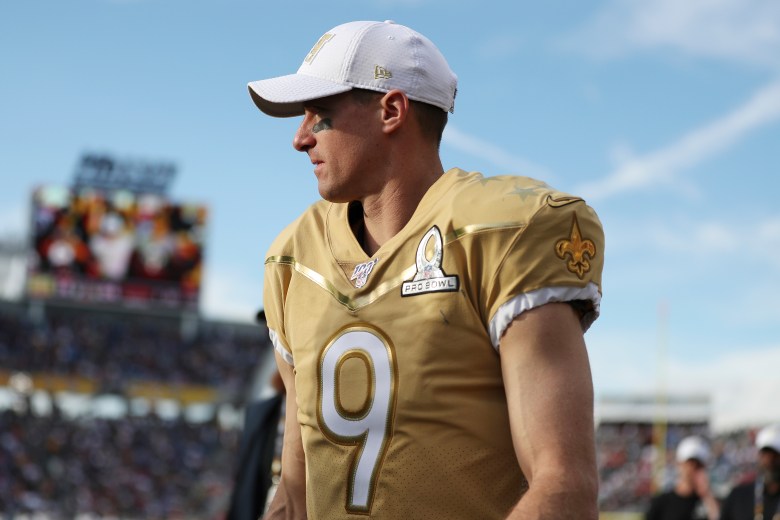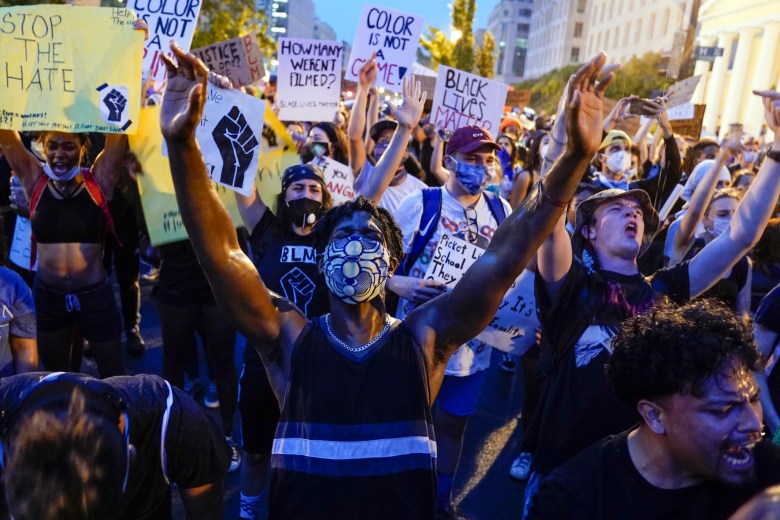
Every black parent, at some point, has to have “the talk,” the proverbial sit-down where we engage our children in a serious discussion about how black people are treated by police. We explain how to converse with police, how to make eye contact, how or when to show respect, how, when necessary, they must sometimes genuflect to unjust authority in order to protect themselves.
Inevitably, it’s not just one talk. Circumstances force us to have a series of conversations throughout our children’s young lives, because racism is a constant presence.
If you are just having “the talk” with your child for the first time this week to explain the protests they’re seeing on television or outside their windows over the deaths of George Floyd, Breonna Taylor, and Ahmaud Arbery, you have a problem. It probably means you’re not regularly talking with them about current events and they’re not getting a good education about American history in school. It also means you have willfully buried your head in the sand to the stark injustices that disrespect the very notion of our American democracy and to the role you may be playing in those injustices by your silence.
In the face of almost daily occurrences of racial violence against black people, there shouldn’t be one talk about police when you’re a parent — of any race. We teach our children every day to help them navigate the communities they live in. We should be talking to kids about racism in this country all the time.
Early on, we teach them not to play with electrical outlets and to be careful near the stove. We teach them to say please and thank you, and to be nice and share. Just as organically as we teach our children to look both ways when crossing the street, we should be giving them regular, developmentally appropriate lessons about race and racism. As we’ve seen, a bad run-in with a cop can be as fatal as a car accident. Failing to have a conversation about the police killings, ensuing protests, and the pain, anxiety and anger they cause is to willfully ignore the cars coming from both sides of the street.
In the face of almost daily occurrences of racial violence against black people, there shouldn’t be one talk about police when you’re a parent — of any race.
No, I did not show my child the video of George Floyd’s murder, but we did talk about it in the context of the racism and white supremacy that led to it. Those ordinary lessons prepare our children for the inevitable challenges they will face directly.
Don’t imagine that avoiding these conversations will shield your child from the horrors of racism; they will absorb this information somehow. And if you ignore it, that’s the lesson they’ll learn from you.
Related: No son, war is not necessary

The sheer number of extrajudicial killings of black people at the hands of police in the last nine years obligated me to give numerous talks to my son about the images and words he invariably sees and hears. When he was 4 in 2014, I talked to him about how Michael Brown had been killed by the police. I explained why I watched the television so intently and how greatly people were upset that a person had died unnecessarily. When my son was 5, Freddie Gray died from injuries he sustained while in police custody. As Roby got older, the deaths of Eric Garner, Philando Castile, Alton Sterling, Sandra Bland, Breonna Taylor and George Floyd all incited age-appropriate conversations.
These conversations are as heart-breaking as they are necessary, especially when they touch a child’s life directly. Growing up in New Orleans, we taught him the Mardi Gras tradition of extending his arms as the floats go by and shouting, “Throw me something, mister!” In 2006, during a Mardi Gras parade, 5-year-old Roby reached up and caught a beaded necklace thrown at him by someone riding a float. The necklace was studded with plastic Confederate flags. We had to have another talk.
Fortunately, my wife and I had given him early lessons about figures like Martin Luther King, Jr., Malcolm X and Rosa Parks and the history of slavery and the Civil Rights Movement. Thankfully, his school at the time taught similar lessons. So when I explained to Roby that the people who supported Confederate flags also supported slavery, and that we couldn’t keep the beads, he understood. He allowed me to throw the racist beads away. Not a tear was shed.
Related: Slavery still shapes all of our lives, yet students aren’t taught its history
This last week, we had to have a new talk, about a hero who had let him down. When my son was newly born, I gave him a New Orleans Saints football jersey, inscribed with the name Drew Brees. That same year, the Saints won a Super Bowl with Brees as quarterback. Since I’m originally from Pittsburgh, my allegiance belonged to that other team in black and gold, the Steelers. But the rise of the Saints after Hurricane Katrina symbolized the rise of the city. The purchase of a Brees jersey was a down payment on my belief that Brees and the Saints cared about New Orleans residents.
Not surprisingly, it became his favorite jersey. Then, last week Brees responded to the death of George Floyd and the protests that have followed with these words: “I will never agree with anybody disrespecting the flag of the United States of America or our country.”
I explained to my son that we’d have to get rid of his Brees jersey because we simply can’t represent someone who willfully ignores the suffering inflicted on people in his own city, on his own team and on the millions of people globally who are tired of police violence. My son didn’t shed a tear when I threw the jersey away because I gave him lessons that prepared him for moments like this; not just one “talk,” but many conversations large and small about the scary world around him.
Brees eventually apologized for his statement. But it’s clear that if anyone needs to have “the talk,” it’s Drew Brees and the many white people whose views he represents. Lessons about police violence, Constitutional rights and white privilege should not be subjects only discussed in black homes: This is information white people need to impart to their kids, too. All the time. Ending racism requires white people to recognize it and address it with their children. Ignoring anti-black policy and policing disrespects our shared humanity, let alone the American Flag.
This story about teaching kids about racism was produced by The Hechinger Report, a nonprofit, independent news organization focused on inequality and innovation in education. Sign up for Hechinger’s newsletter.


At The Hechinger Report, we publish thoughtful letters from readers that contribute to the ongoing discussion about the education topics we cover. Please read our guidelines for more information. We will not consider letters that do not contain a full name and valid email address. You may submit news tips or ideas here without a full name, but not letters.
By submitting your name, you grant us permission to publish it with your letter. We will never publish your email address. You must fill out all fields to submit a letter.